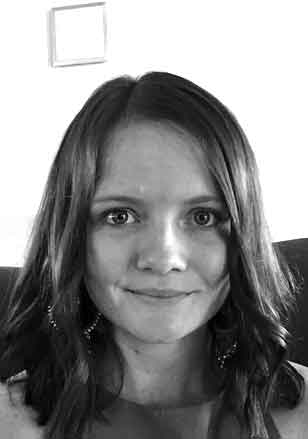The Disability Royal Commission has highlighted that women, girls and LGBTIQA+ people with disability experience alarming rates of family, domestic and sexual violence.
On Tuesday 5 April, join Your Story Disability Legal Support for an online discussion about safety, gender and disability, and the opportunity to share ideas for change with the Royal Commission.
The lunchtime webinar will be facilitated by Your Story lawyer Josie Short and feature two strong female advocates with disability, Deborah Thomson and Heidi La Paglia Reid.
They will discuss what can be done to make Australia safer and more inclusive of women, girls, feminine-identifying, trans, inter-sex and non-binary people with disability. They will also reflect on public hearing 17.2, which will examine this issue and is scheduled for 28 March to 1 April.
Deborah is a woman with disability and a domestic violence survivor and advocate based in Burnie, Tasmania. With Your Story’s support, she recently shared her ideas and recommendations for change with the Disability Royal Commission.
Heidi is a proud Autistic, feminist activist from Hobart, Tasmania, and the Director of Policy and Programs at Women With Disabilities Australia (WWDA). She is also a member of the Your Story Advisory Group.
Josie is a Your Story lawyer based at the Tasmanian Aboriginal Legal Service, where she supports Aboriginal and Torres Strait Islander people living with disability to share their stories with the Royal Commission. Josie also practices in family and civil law and supports many Tasmanian women and girls who have experienced violence.
This free online event will include Auslan interpreters and live captions. You can join using Zoom or Facebook.
Please visit the Eventbrite page to register.
Date and time: Tuesday 5 April from 12.30pm to 1.15pm AEST
Location: You can join using Zoom or Facebook
Cost: Free
Register: Please visit the Eventbrite page to register
Meet the speakers
Deborah Thomson
Deborah is physically disabled, her diagnosis: Late Onset Friedreich's Ataxia, a neurological, genetic, and degenerative disorder. She was abused by her former partner before her disability became apparent.
After leaving the abuser, Deb underwent neurosurgery to clip two brain aneurysms; an acquired brain injury because of head injuries sustained during episodes of partner abuse. The surgery in 2016 exacerbated her disability, mentally and physically.
Since writing two books about domestic violence (terrorism), Deborah has trained as an advocate for survivors of violence. She is striving for change for both domestic violence survivors and people with disability, particularly those who have experienced abuse by their partner, who can often be their carer as well.
Heidi La Paglia Reid
Heidi is a proud Autistic, feminist activist from Hobart, Tasmania, and the Director of Policy and Programs at Women With Disabilities Australia (WWDA). Heidi has worked for WWDA for a number of years, in which time she has worked on a number of projects.
Heidi represents WWDA on a number of advisory groups with sector stakeholders and, among other issues, has a strong interest in ensuring that efforts to support the safety and reproductive rights of women and non-binary people are inclusive of people with disability.
Heidi previously completed Bachelor of Arts, Bachelor of Philosophy and Arts Honours degrees at the University of Tasmania.
Josie Short

Josie is passionate about social justice with over seven years’ experience advocating for and supporting people who are disadvantaged by societal barriers. She has a Bachelor of Laws (Honours) and Graduate Diploma in Psychology from the University of Adelaide.
As a lawyer with Your Story Disability Legal Support based at the Tasmanian Aboriginal Legal Service, Josie acts for and supports Aboriginal and Torres Strait Islander people living with disability to share their stories with the Disability Royal Commission.
Josie also currently practices in civil and family law and supports many Tasmanian women and girls who have experienced violence. She uses her advocacy, dispute resolution and negotiation skills to achieve outcomes for her clients that promote their safety and wellbeing and empower them to advocate for themselves.
Josie has previously been on numerous voluntary committees and boards at organisations that support and advocate for women and young people, including the Northern Territory Women Lawyers Association, Northern Territory Young Lawyers Association; Australian Lawyers Alliance; and numerous sporting associations.